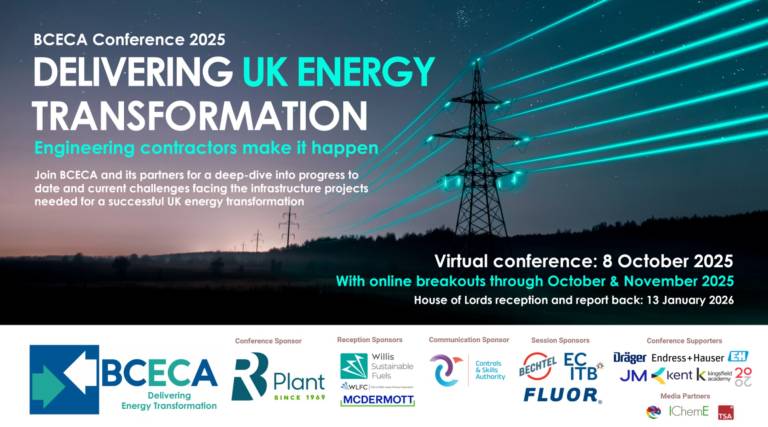
The conference opened with a scene-setting keynote from the former UK Chancellor of the Exchequer, Lord Philip Hammond. He observed that in recent years, the political consensus for Net Zero had eroded rapidly. Climate sceptic arguments were gaining traction and being loudly voiced. Even those who supported the UK's energy transformation were beginning to ask questions about its affordability and the pace of change. Mainstream politicians were worried about a potential public backlash and the spread of right-wing populism. He explored the geopolitical, technological, political, and fiscal drivers that were hampering the rapid build-out of new low-carbon infrastructure, particularly for hydrogen production and the associated carbon capture and storage (CCS) needed for hydrogen processed from natural gas as a feedstock. The energy transformation must now be crafted within present-day fiscal and political realities.
He ended on a positive note, arguing that renewables and hydrocarbons were likely to coexist for decades and both would be needed to meet rising demand. For CCUS, support for continued oil and gas extraction was likely to be politically 'easier' if viable decarbonisation solutions were in the pipeline. However, business may look different from what was expected. He called upon the engineering contracting sector to focus on supplying the technical, commercial, and financial expertise required for all energy sources. A renewed sense of realism is needed, with all parties working towards achievable goals and commercial frameworks, not just aspirational targets.
Lord Hammond's contribution provided much food for thought, initiating a day of productive conversations on the implications for subcontractors and supply chains, the creation of thriving workplaces, and a series of project case studies examining current developments in sustainable aviation fuels, green and blue hydrogen production, and offshore wind. In her closing remarks, BCECA Chief Executive Tracey Shelley highlighted three initial takeaways: first, a need for better risk and reward sharing, second, the concept of an ‘integrated energy workforce’, and finally, the diversity of the processes discussed during the day was a reminder that whatever energy technology is being deployed, innovative engineering is critical for successful delivery. But equally important, the engineering contractor must be involved from the get-go.
Below is a full conference recording with direct individual sessions and speaker playback. The conference report back was published at a reception in the House of Lords on Tuesday 13 January 2026.
Read our 2025 Conference Report
Conference Reception Photo Gallery
Add me to the BCECA conference mailing list
 BCECA is grateful to our Main Conference Sponsor, RB Plant Ltd., for their generous support of our 2025 conference. RB Plant is an engineering and project delivery partner with over five decades of experience in executing complex industrial projects across various sectors. They specialise in engineering design & consultancy, construction and project management, procurement, surveying, modelling & simulation, and business transformation. RB Plant’s expertise spans pharmaceuticals, chemicals, tank storage, battery materials, food & drink, paper & packaging, glass & metals, minerals, and energy & environment.
BCECA is grateful to our Main Conference Sponsor, RB Plant Ltd., for their generous support of our 2025 conference. RB Plant is an engineering and project delivery partner with over five decades of experience in executing complex industrial projects across various sectors. They specialise in engineering design & consultancy, construction and project management, procurement, surveying, modelling & simulation, and business transformation. RB Plant’s expertise spans pharmaceuticals, chemicals, tank storage, battery materials, food & drink, paper & packaging, glass & metals, minerals, and energy & environment.
For more information about RB Plant, visit their website
Session 1
Sponsored by:

Chair: Mark Stanton, Project Director, Fluor.
New government, new purpose - but what next for the UK energy transformation?
Conference Welcome and Introduction
Mark Stanton, Project Director, Fluor and BCECA chair.
Where does the UK go next?
Keynote contribution by Lord Philip Hammond, former UK Chancellor of the Exchequer and Foreign Secretary, Chair of RCK Partners.
Delivering Net Zero with homegrown energy
Presentation by Enrique Cornejo, Head of Energy Policy, Offshore Energies UK.
Empowering Energy Transition Start-Ups
The strategic advantage of collaborating with EPC companies, and how project developers will benefit from working with EPC contractors
Presentation by Kaveh Ebrahimi, Director of Mechanical Engineering, Fluor and Oliver Carter, Principal Process Engineer, Fluor.
Session 2
Sponsored by:

Chair: Rebecca Groundwater, Head of External Affairs, EIC.
The supply chain perspective - what's needed for effective delivery?
An update on the energy transition marketplace
What projects are coming forward and how quickly? Neil Golding, Director of Market Intelligence at the Energy Industries Council (EIC), assessed the current status of UK energy transition projects. Are we still in the study and pre-sanction design phase, or are real projects at volume actually now happening?
The supply chain perspective
Rebecca Groundwater from the EIC facilitated a round table with invited experts from across the engineering contracting and energy industry supply chains. Topics addressed include: What's different about today's energy transformation projects? What do suppliers need? How can suppliers, contractors and developers work together more effectively?
Panel:
Neil Golding, Director of Market Intelligence, EIC
David Knight, Concept Solutions Engineering Manager, Gas, SLB
Lucy Brown, Regional Sales Manager, Severn Valves
Keiren Lake, Business Development Manager, Siemens Energy Ltd.
Session 3
Sponsored by:

Chair: Andrew Hockey, CEO, ECITB
People & Skills - How to Build a Thriving Workplace
Do we really have a skills shortage in the UK?
John Pearson, Chief Operating Officer of the global energy services company Petrofac, in conversation with Andrew Hockey, Chief Executive of ECITB, the employer-led skills body for the engineering and construction industry, addresses the question: Should we be concerned about the UK's skills pipeline?
[The audio quality in this interview is poor at times due to connection problems on the day]
Reimagining diversity and inclusion: From intent to impact
A panel discussion, chaired by Blair Fraser, Head of Carbon Advisory, and Sophie Jacobs, Global Early Careers Team Lead at Wood plc, offered a fresh perspective on the industry's stance on equality, diversity, and inclusion. Issues discussed included: How do we attract and retain a diverse workforce, and how do we avoid the "Inclusion illusion"?
Panel:
Christine McLean, President, The Controls & Skill Authority
Paul Mudd, Business Development Director, TRS Workforce Solutions
Mark McBride-Wright, Founder & CEO, EqualEngineers
Sean McKirdy, Director, RB Plant Construction Ltd.
Session 4
Sponsored by:

Chair: James Fibbens, Senior Project Manager, Bechtel Energy.
Energy transformation case studies – what do we know?
The Willis sustainable aviation fuels facility in Teesside
An overview of the SAF facility being developed by Willis and supported by McDermott
Presentation by Hannah Lainton, Project Manager, McDermott.
A Green Hydrogen template project
Presentation by Andrew Till, Principal Advisor Hydrogen, Bechtel.
Enabling large-scale blue hydrogen projects to reach a final investment decision
Presentation by Carron Freeney, Global Head of EPC Relations, Topsoe.
A High Voltage Direct Current (HVDC) case study - the what and the why of HVDC substations and the complexity of EPC delivery
Presentation by Umesh Kelkar, Portfolio Engineering Manager and Adam Wintle, Delivery Manager, Aker Solutions.
Assessing the potential of Sustainable Aviation Fuels
Experience with practical pathways. Harnessing the potential of sustainable aviation fuels: renewable hydrogen's role in waste gasification
Presentation by Luigi Crolla, Head of Energy Transition Technologies, Kent
Closing Remarks
BCECA CEO, Tracey Shelley, provided a flash summary of key issues raised during the day's discussion and offered words of thanks before confirming the date for BCECA's 6th Annual Conference, which will take place on Wednesday 7 October 2026.
